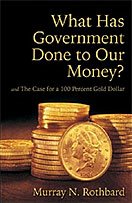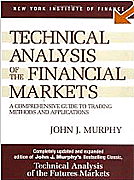Gold sales meant for market manipulation, MineWeb chief acknowledges
MineWeb chief Lawrence Williams speculates that central banks may attempt major sales of gold to support the fading U.S. dollar -- an acknowledgement that central banks undertake to sell gold not to diversify their reserves or relieve themselves of the expense of storing a supposedly dead asset, long their cover stories, but to manipulate the currency and government bond markets...
The prospect of new Central Bank sales of gold to try and contribute to dollar stabilisation is likely to be under consideration. Will this happen, and, if it does, what will be the likely effect on the gold market?
Author: Lawrence Williams
Posted: Thursday , 17 Jul 2008
LONDON -
Following various pronouncements in Washington and elsewhere there seems little doubt that moves are being discussed to try and halt the greenback's seemingly ever-spiralling downturn now that the Fed is beginning to concern itself with inflation. This may just mean US interventions in the markets to buy dollars, but could also be the prelude to some concerted sales of gold into the market as higher gold prices are themselves seen as an indication of dollar devaluation (which indeed they are) and so the feeling among some Central Bankers is that a gold sell-off will in turn help stabilise the dollar.
This may well occur. Be warned. There are enough gold disbelievers in the sector to make it happen. But one suspects it will be of little use in the medium to long term. The U.S.'s economic malaise cannot be halted by selling the best indicator out there of dollar weakness. The weakness goes far deeper structurally into the American dream which up until the second half of last year had been boosted by virtually unlimited credit, a significant proportion of which was being taken up by those who could least afford to repay it in a downturn. Unfortunately the American dream has de facto become a global dream as the world's economic powerhouse has aggressively exported its ideas of capitalism (behind the smokescreen of democracy) all around the world - sometimes by force where it has seen its economic interests and security threatened.
The banking and investment sector - particularly the former - has to take a huge amount of responsibility for what has occurred. Traditionally an ultra-cautious sector, this caution seems to have been thrown to the winds in the name of ever increasing profits as enormous sums of money are moved around and where even a fraction of a percentage turn on which is worth billions of dollars. Perhaps the problem is that investment banking these days is largely populated by the young and overly-aggressive, dazzled by riches beyond belief and corresponding greed, with corporate bonuses running into sums which seem to exceed the GDP of some countries! Most of all they are those who have no prior experience of a really serious downturn.
The culture is alarming to the person in the street who only earns a tiny fraction of the kinds of sums available to those with few scruples and mega incomes and who may look down with disdain on those who have not selected careers which can generate such extremes of wealth.
Perhaps this is a little unfair and is only painting a picture of the extremes in the sector. There are still plenty of traditional conservative bankers around who are probably just as horrified at some of those they have to rub shoulders with and whose warnings have gone unheeded. They are taking command now and some of their cautions in dealings with fellow banks are perhaps at the root of the credit crunch which means that almost all risk elements have to be removed before loans - corporate and personal - are approved.
But there is still a debt mountain out there and credit card issuers have to be the next area where some financial collapses have to be on the cards as more and more individuals default on credit card debts - a worrying parallel with the mortgage defaulters who have dominated the analyses so far and who have precipitated runs on banks and savings and loans (building societies to us Brits).
But we digress. Will the bankers sell gold to try and reverse the dollar slide? And if they do will it make any serious difference to the gold price, or the dollar, anyway? Short term negative gold price impacts may result, but overall the fundamentals behind the dollar weakness cannot be undone by such an artificial procedure. Indeed if such sales are made openly, and the gold price is not significantly affected, which has to be a possibility, then the dollar may be seen as being even weaker still.
What is likely to be the dollar saviour in terms of currencies like the Euro and perhaps the Yen, is that the US has very successfully exported many of the problems it is currently facing to the Euro zone and elsewhere and only now is the true impact of the financial crisis in these areas beginning to sink in. We are seeing housing price collapses in some European countries - the trigger behind the US downturn - and as the US economy begins to stabilise, which it probably will, the downturn is beginning to get under way elsewhere and other economies will weaken. That may be what truly halts the dollar slide.
Another factor which could impact the dollar positively, and gold negatively, is a bursting of the oil price bubble. Gold has moved up with the oil price and it may move down with it too until it eventually is likely to decouple and find its own way. This has already been seen in the past couple of days and something we warned about here only a couple of weeks ago. See: Is gold too low compared with oil - or is it that oil is just too high?
Although Paul Walker of GFMS recently told Moneyweb/Mineweb his research group is not seeing a decline in gold production worldwide, it is not seeing an increase either which would seem strange given the big rise in the gold price over the last few years. Indeed it would appear that the gold mining sector is facing difficult times and if the returns are not there we are going to see production decline anyway. It's a fine balance between price and production and with bankers being over-cautious with their loans we are certainly going to see a number of what would have seemed to be probable new gold mine developments and expansions curtailed, deferred or postponed indefinitely.
This alone would help mitigate the impact of any Central Bank sales, while the investment take-up of physical gold through ETFs has become an almost overnight phenomenon. It is again becoming respectable (and much easier) to hold a direct investment in gold bullion and with more and more institutions beginning to recognise the value of holding gold as part of a balanced portfolio there is likely to continue to be growth in this sector of the market.
So, should Central Banks sell gold to try and help stabilise the dollar, apart from some short term dips around the gold sales themselves, it is likely the markets will absorb whatever is thrown at them. This would be either through a decline in production and continuing increasing investment demand, not to mention some likely purchases by some central banks which a) believe in gold and b) feel they need to hold more of their foreign exchange reserves in some currency other than the US dollar - and in this respect gold definitely counts as a currency.
While there may be a negative impact in that gold might not move upwards as fast as some would predict, longer term fundamentals look good for gold and with economic instability likely to continue for some time one has to remain positive on the price.
Possibility of big Central Bank gold sales to help try and stabilise the dollar
The prospect of new Central Bank sales of gold to try and contribute to dollar stabilisation is likely to be under consideration. Will this happen, and, if it does, what will be the likely effect on the gold market?
Author: Lawrence Williams
Posted: Thursday , 17 Jul 2008
LONDON -
Following various pronouncements in Washington and elsewhere there seems little doubt that moves are being discussed to try and halt the greenback's seemingly ever-spiralling downturn now that the Fed is beginning to concern itself with inflation. This may just mean US interventions in the markets to buy dollars, but could also be the prelude to some concerted sales of gold into the market as higher gold prices are themselves seen as an indication of dollar devaluation (which indeed they are) and so the feeling among some Central Bankers is that a gold sell-off will in turn help stabilise the dollar.
This may well occur. Be warned. There are enough gold disbelievers in the sector to make it happen. But one suspects it will be of little use in the medium to long term. The U.S.'s economic malaise cannot be halted by selling the best indicator out there of dollar weakness. The weakness goes far deeper structurally into the American dream which up until the second half of last year had been boosted by virtually unlimited credit, a significant proportion of which was being taken up by those who could least afford to repay it in a downturn. Unfortunately the American dream has de facto become a global dream as the world's economic powerhouse has aggressively exported its ideas of capitalism (behind the smokescreen of democracy) all around the world - sometimes by force where it has seen its economic interests and security threatened.
The banking and investment sector - particularly the former - has to take a huge amount of responsibility for what has occurred. Traditionally an ultra-cautious sector, this caution seems to have been thrown to the winds in the name of ever increasing profits as enormous sums of money are moved around and where even a fraction of a percentage turn on which is worth billions of dollars. Perhaps the problem is that investment banking these days is largely populated by the young and overly-aggressive, dazzled by riches beyond belief and corresponding greed, with corporate bonuses running into sums which seem to exceed the GDP of some countries! Most of all they are those who have no prior experience of a really serious downturn.
The culture is alarming to the person in the street who only earns a tiny fraction of the kinds of sums available to those with few scruples and mega incomes and who may look down with disdain on those who have not selected careers which can generate such extremes of wealth.
Perhaps this is a little unfair and is only painting a picture of the extremes in the sector. There are still plenty of traditional conservative bankers around who are probably just as horrified at some of those they have to rub shoulders with and whose warnings have gone unheeded. They are taking command now and some of their cautions in dealings with fellow banks are perhaps at the root of the credit crunch which means that almost all risk elements have to be removed before loans - corporate and personal - are approved.
But there is still a debt mountain out there and credit card issuers have to be the next area where some financial collapses have to be on the cards as more and more individuals default on credit card debts - a worrying parallel with the mortgage defaulters who have dominated the analyses so far and who have precipitated runs on banks and savings and loans (building societies to us Brits).
But we digress. Will the bankers sell gold to try and reverse the dollar slide? And if they do will it make any serious difference to the gold price, or the dollar, anyway? Short term negative gold price impacts may result, but overall the fundamentals behind the dollar weakness cannot be undone by such an artificial procedure. Indeed if such sales are made openly, and the gold price is not significantly affected, which has to be a possibility, then the dollar may be seen as being even weaker still.
What is likely to be the dollar saviour in terms of currencies like the Euro and perhaps the Yen, is that the US has very successfully exported many of the problems it is currently facing to the Euro zone and elsewhere and only now is the true impact of the financial crisis in these areas beginning to sink in. We are seeing housing price collapses in some European countries - the trigger behind the US downturn - and as the US economy begins to stabilise, which it probably will, the downturn is beginning to get under way elsewhere and other economies will weaken. That may be what truly halts the dollar slide.
Another factor which could impact the dollar positively, and gold negatively, is a bursting of the oil price bubble. Gold has moved up with the oil price and it may move down with it too until it eventually is likely to decouple and find its own way. This has already been seen in the past couple of days and something we warned about here only a couple of weeks ago. See: Is gold too low compared with oil - or is it that oil is just too high?
Although Paul Walker of GFMS recently told Moneyweb/Mineweb his research group is not seeing a decline in gold production worldwide, it is not seeing an increase either which would seem strange given the big rise in the gold price over the last few years. Indeed it would appear that the gold mining sector is facing difficult times and if the returns are not there we are going to see production decline anyway. It's a fine balance between price and production and with bankers being over-cautious with their loans we are certainly going to see a number of what would have seemed to be probable new gold mine developments and expansions curtailed, deferred or postponed indefinitely.
This alone would help mitigate the impact of any Central Bank sales, while the investment take-up of physical gold through ETFs has become an almost overnight phenomenon. It is again becoming respectable (and much easier) to hold a direct investment in gold bullion and with more and more institutions beginning to recognise the value of holding gold as part of a balanced portfolio there is likely to continue to be growth in this sector of the market.
So, should Central Banks sell gold to try and help stabilise the dollar, apart from some short term dips around the gold sales themselves, it is likely the markets will absorb whatever is thrown at them. This would be either through a decline in production and continuing increasing investment demand, not to mention some likely purchases by some central banks which a) believe in gold and b) feel they need to hold more of their foreign exchange reserves in some currency other than the US dollar - and in this respect gold definitely counts as a currency.
While there may be a negative impact in that gold might not move upwards as fast as some would predict, longer term fundamentals look good for gold and with economic instability likely to continue for some time one has to remain positive on the price.
Labels: inflation, market manipulation, mining















![[Most Recent Quotes from www.kitco.com] [Most Recent Quotes from www.kitco.com]](http://www.kitco.com/images/live/t24_au_en_usoz_6.gif)
![[Most Recent Quotes from www.kitco.com] [Most Recent Quotes from www.kitco.com]](http://www.kitco.com/images/live/au_go_0030_ny.gif)
![[Most Recent Quotes from www.kitco.com] [Most Recent Quotes from www.kitco.com]](http://www.kitco.com/images/live/au_go_0365_ny.gif)
![[Most Recent Quotes from www.kitco.com] [Most Recent Quotes from www.kitco.com]](http://kitconet.com/charts/metals/silver/t24_ag_en_usoz_4.gif)

















0 ΣΧΟΛΙΑ (COMMENTS):
Post a Comment
<< Home